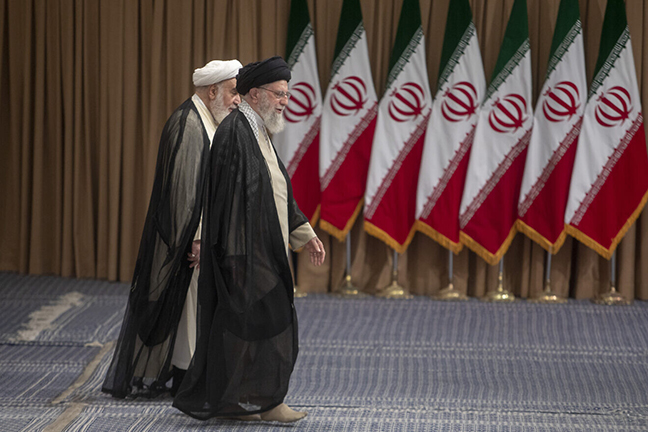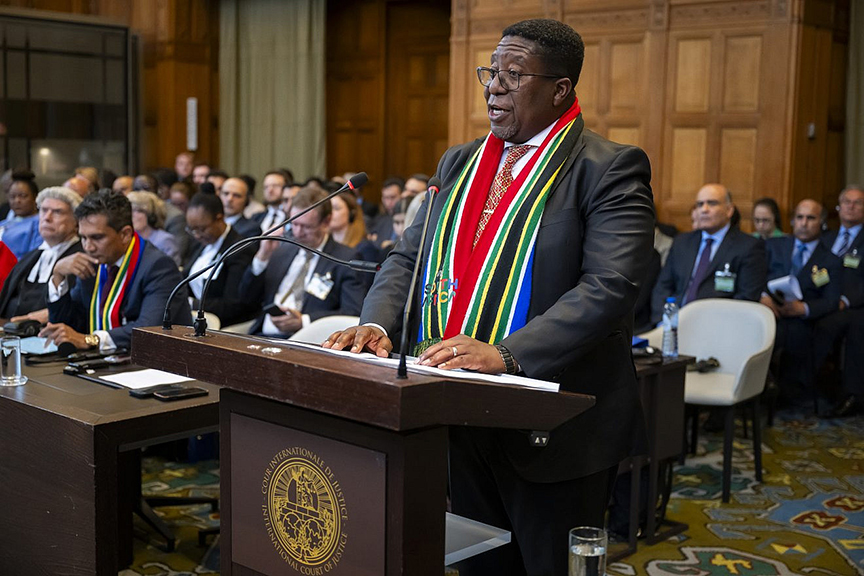U.S. warns Iran of “ruinous response” to any major attack on Israel

Iranian Supreme Leader Ayatollah Ali Khamenei arrives to vote in Tehran in the presidential runoff election on July 5, 2024. Photo by Majid Saeedi/Getty Images.
by Joshua Marks
(JNS) — The United States has cautioned Iran that it could face a devastating response from Israel if it carries out a major attack against the Jewish state.
A U.S. official told The Wall Street Journal that the message has been conveyed both directly to Tehran and through intermediaries, the paper reported on Aug. 8.
The Islamic Republic has vowed revenge for the targeted killing of Hamas terrorist chief Ismail Haniyeh in Tehran last week. Reports have surfaced this week that the mullah regime may be reconsidering the level of its response amid intensive diplomatic pressure and military force buildup by the Americans.
“The United States has sent clear messaging to Iran that the risk of a major escalation if they do a significant retaliatory attack against Israel is extremely high,” the official said.
Tehran is now aware “that there is a serious risk of consequences for Iran’s economy and the stability of its newly elected government if it goes down that path,” the official continued.
Arab diplomats have also pressed the Iranian government in recent days to de-escalate the situation, passing along a similar warning to that of the Americans, according to the Journal. At a meeting of the Organisation of Islamic Cooperation in Jeddah, Saudi Arabia, this week, members condemned the Haniyeh killing but stopped short of collectively supporting an Iranian attack on Israel.
President Masoud Pezeshkian, who entered office on July 28, has pleaded with Supreme Leader Ayatollah Ali Khamenei to avoid a direct attack on Israel, warning that it could threaten his presidency and lead to devastation of Iran’s infrastructure, energy and economy, the London-based Iran International reported.
Pezeshkian told the supreme leader that a harsh Israeli counterattack could lead to the collapse of the regime.
Iran’s Lebanese terrorist proxy Hezbollah has also pledged to retaliate for last week’s targeted killing of senior official Fuad Shukr in Beirut, which Jerusalem carried out in response to a Hezbollah rocket that hit a soccer field in the Golan Druze town of Majdal Shams, killing 12 children.
Jerusalem has not commented on the Haniyeh killing, while Iran and Hamas said that the Jewish state was responsible.
Israel’s Channel 12 News reported on Aug. 7 that Hezbollah Secretary-General Hassan Nasrallah could see a window of opportunity to initiate an attack in the coming days. A large-scale intelligence effort is underway to identify the timing and nature of the response.
Two U.S. officials told the Journal that the assessment is that Tehran cannot conduct a military campaign much larger than the April assault against Israel, the first-ever direct confrontation between Jerusalem and Tehran, which saw some 300 missiles and drones fired, the vast majority of which were shot down by Israel and allied and regional forces.
According to an Aug. 8 report in The Guardian, Tehran might choose not to commit to a wide-scale attack against Israel, instead opting for more targeted actions against those responsible for the Haniyeh execution.



